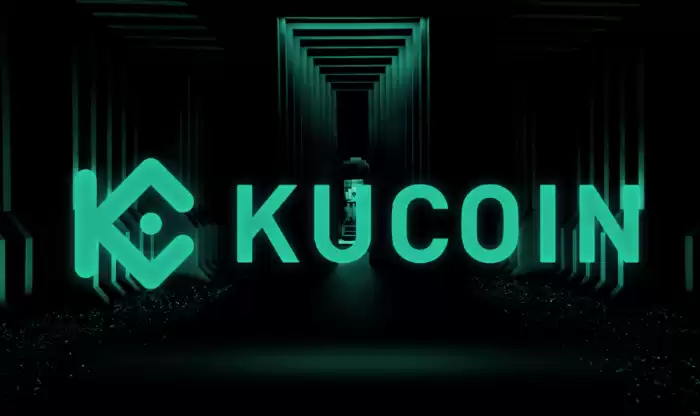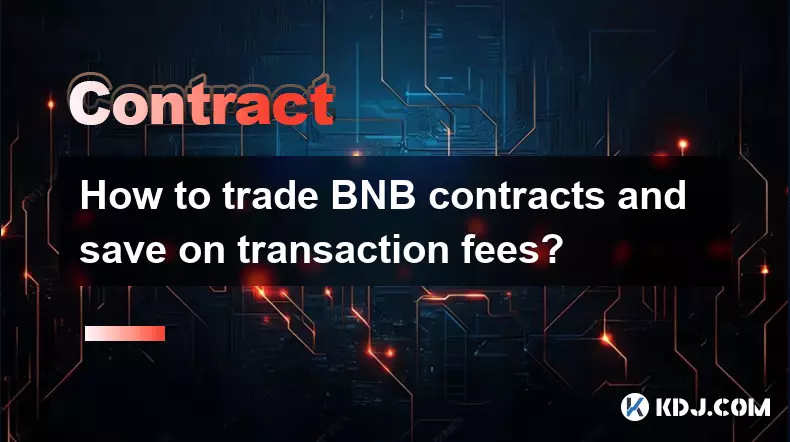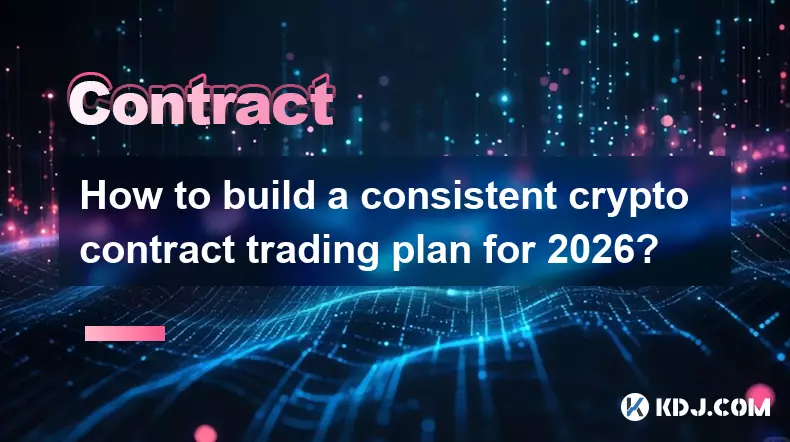-
 bitcoin
bitcoin $87959.907984 USD
1.34% -
 ethereum
ethereum $2920.497338 USD
3.04% -
 tether
tether $0.999775 USD
0.00% -
 xrp
xrp $2.237324 USD
8.12% -
 bnb
bnb $860.243768 USD
0.90% -
 solana
solana $138.089498 USD
5.43% -
 usd-coin
usd-coin $0.999807 USD
0.01% -
 tron
tron $0.272801 USD
-1.53% -
 dogecoin
dogecoin $0.150904 USD
2.96% -
 cardano
cardano $0.421635 USD
1.97% -
 hyperliquid
hyperliquid $32.152445 USD
2.23% -
 bitcoin-cash
bitcoin-cash $533.301069 USD
-1.94% -
 chainlink
chainlink $12.953417 USD
2.68% -
 unus-sed-leo
unus-sed-leo $9.535951 USD
0.73% -
 zcash
zcash $521.483386 USD
-2.87%
How to calculate the KuCoin contract transaction fee
Determining the exact transaction fees on KuCoin's contract trading platform requires considering factors such as contract type, VIP level, and trade size.
Nov 13, 2024 at 04:59 am

Understanding and calculating contract transaction fees on KuCoin is crucial for effective trading and managing your financial resources. This article provides a comprehensive guide to help you calculate these fees accurately.
1. Identify the Contract Fee StructureKuCoin adopts a simple and transparent fee structure for its contract trading platform. The fees are determined based on the following elements:
- Maker Fee: Charged to users who place orders that add liquidity to the order book by creating new bids or asks.
- Taker Fee: Charged to users who place orders that immediately execute against existing orders in the order book, removing liquidity.
- Fixed Fee: A flat fee charged for certain contract types, regardless of trade size or maker/taker status.
KuCoin offers different fee rates based on the contract type and VIP level of the user. The fee rates vary depending on the following factors:
- Contract Type: Different types of contracts, such as Perpetual Contracts, Futures Contracts, and Mini Futures Contracts, have varying fee rates.
- VIP Level: Users with higher VIP levels enjoy lower fee rates as a loyalty bonus.
To find the fee rate for a specific contract, you can refer to KuCoin's fee schedule or check the contract information page for details.
3. Calculate the Transaction FeeOnce you know the fee rate, you can calculate the transaction fee based on the following formula:
Transaction Fee = Trade Size × Fee Rate- Trade Size: The notional value of the contract traded, calculated by multiplying the contract price by the number of contracts traded.
- Fee Rate: The maker fee or taker fee rate, as applicable.
For example, suppose you want to buy 1 BTC Perpetual Contract with a price of $20,000 and a maker fee rate of 0.02%.
- Trade Size: $20,000 (Contract Price) × 1 (Number of Contracts) = $20,000
- Transaction Fee: $20,000 × 0.0002 = $4
In addition to the core transaction fee, you may encounter other fees when trading contracts on KuCoin:
- Funding Fee: A periodic fee charged to adjust the price of the Perpetual Contract to match the spot market price.
- Margin Interest Fee: A charge incurred when using leverage to trade contracts.
- Overnight Storage Fee: A daily fee for holding overnight positions in some futures contracts.
To minimize transaction fees, you can consider the following strategies:
- Use Maker Orders: Placing maker orders adds liquidity to the order book, resulting in a lower maker fee.
- Reach Higher VIP Levels: As you trade more and increase your trading volume, you can unlock higher VIP levels with reduced fee rates.
- Utilize KuCoin Tokens (KCS): Holding KCS in your account grants you a discounted fee rate, with discounts increasing with higher KCS holdings.
Disclaimer:info@kdj.com
The information provided is not trading advice. kdj.com does not assume any responsibility for any investments made based on the information provided in this article. Cryptocurrencies are highly volatile and it is highly recommended that you invest with caution after thorough research!
If you believe that the content used on this website infringes your copyright, please contact us immediately (info@kdj.com) and we will delete it promptly.
- Bitcoin Price Navigates Market Trends: Fed Fears, Institutional Shifts, and Tech's Double-Edged Sword
- 2026-02-03 04:40:02
- Get Your Game On: Fallout Trivia, Local Event, Free Drink – The Wasteland's Calling!
- 2026-02-03 04:35:01
- Get Your Nuka-Cola Fix: Fallout Trivia, a Stellar Local Event, Sweetens the Deal with a Free Drink!
- 2026-02-03 04:40:02
- Galactic Ambitions: SpaceX and xAI Chart a Potential Merger Course
- 2026-02-03 04:35:01
- Crypto's Wild Ride: NYC Investors Eye 'Buy the Dip' for Legendary Growth
- 2026-02-03 04:20:01
- Binance Pivots SAFU Reserve to Bitcoin, Bolstering User Protection Amidst Market Volatility
- 2026-02-03 04:20:01
Related knowledge

How to close a crypto contract position manually or automatically?
Feb 01,2026 at 11:19pm
Manual Position Closure Process1. Log into the trading platform where the contract is active and navigate to the 'Positions' or 'Open Orders' tab. 2. ...

How to understand the impact of Bitcoin ETFs on crypto contracts?
Feb 01,2026 at 04:19pm
Bitcoin ETFs and Market Liquidity1. Bitcoin ETFs introduce institutional capital directly into the spot market, increasing order book depth and reduci...

How to trade DeFi contracts during the current liquidity surge?
Feb 01,2026 at 07:00am
Understanding Liquidity Dynamics in DeFi Protocols1. Liquidity surges in DeFi are often triggered by coordinated capital inflows from yield farming in...

How to use social trading to copy crypto contract experts?
Feb 02,2026 at 07:40am
Understanding Social Trading Platforms1. Social trading platforms integrate real-time market data with user interaction features, enabling traders to ...

How to trade BNB contracts and save on transaction fees?
Feb 03,2026 at 12:39am
Understanding BNB Contract Trading Mechanics1. BNB contracts are derivative instruments traded on Binance Futures, allowing users to gain leveraged ex...

How to build a consistent crypto contract trading plan for 2026?
Feb 02,2026 at 10:59pm
Defining Contract Specifications1. Selecting the underlying asset requires evaluating liquidity depth, historical volatility, and exchange support acr...

How to close a crypto contract position manually or automatically?
Feb 01,2026 at 11:19pm
Manual Position Closure Process1. Log into the trading platform where the contract is active and navigate to the 'Positions' or 'Open Orders' tab. 2. ...

How to understand the impact of Bitcoin ETFs on crypto contracts?
Feb 01,2026 at 04:19pm
Bitcoin ETFs and Market Liquidity1. Bitcoin ETFs introduce institutional capital directly into the spot market, increasing order book depth and reduci...

How to trade DeFi contracts during the current liquidity surge?
Feb 01,2026 at 07:00am
Understanding Liquidity Dynamics in DeFi Protocols1. Liquidity surges in DeFi are often triggered by coordinated capital inflows from yield farming in...

How to use social trading to copy crypto contract experts?
Feb 02,2026 at 07:40am
Understanding Social Trading Platforms1. Social trading platforms integrate real-time market data with user interaction features, enabling traders to ...

How to trade BNB contracts and save on transaction fees?
Feb 03,2026 at 12:39am
Understanding BNB Contract Trading Mechanics1. BNB contracts are derivative instruments traded on Binance Futures, allowing users to gain leveraged ex...

How to build a consistent crypto contract trading plan for 2026?
Feb 02,2026 at 10:59pm
Defining Contract Specifications1. Selecting the underlying asset requires evaluating liquidity depth, historical volatility, and exchange support acr...
See all articles










































































